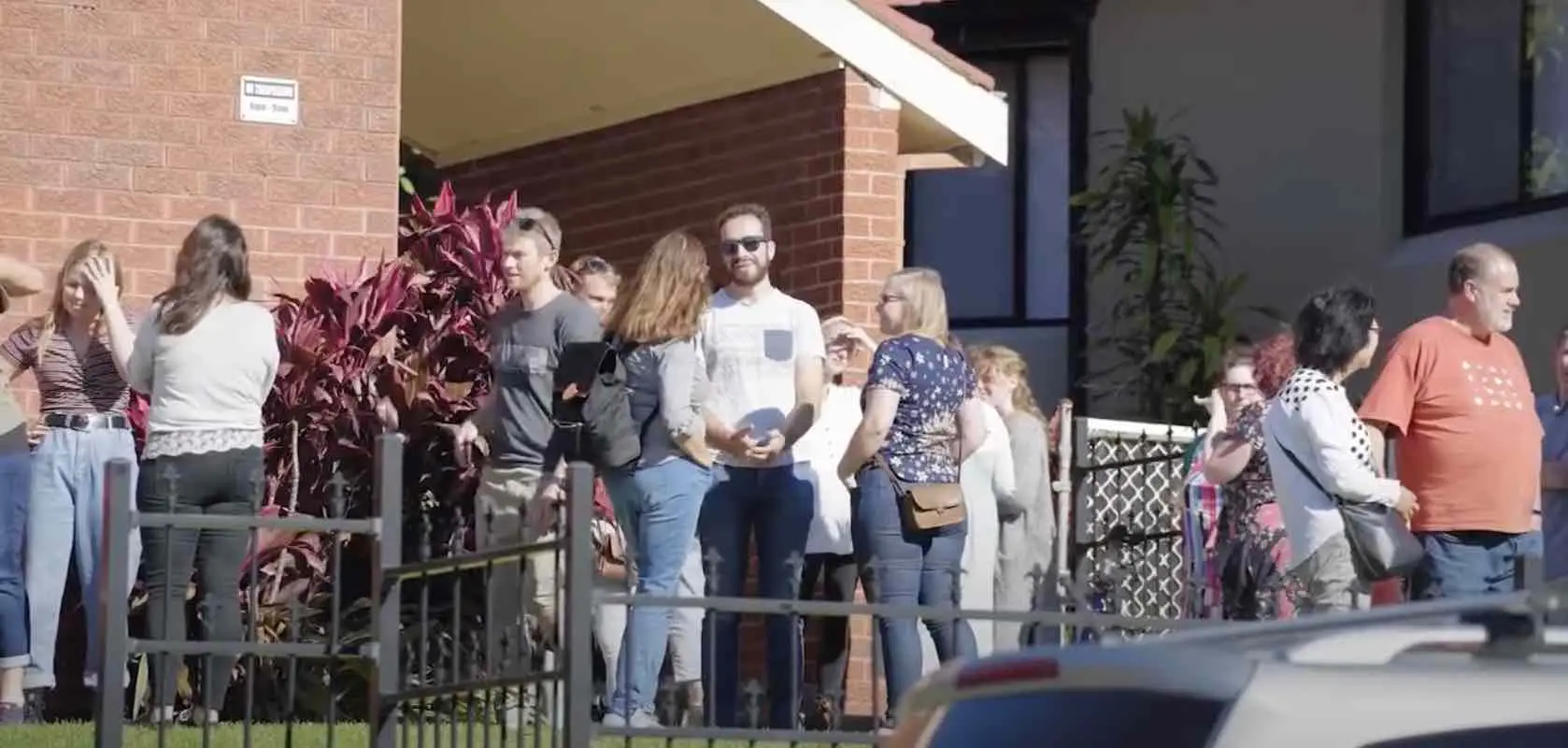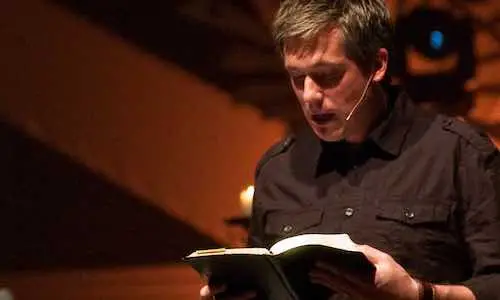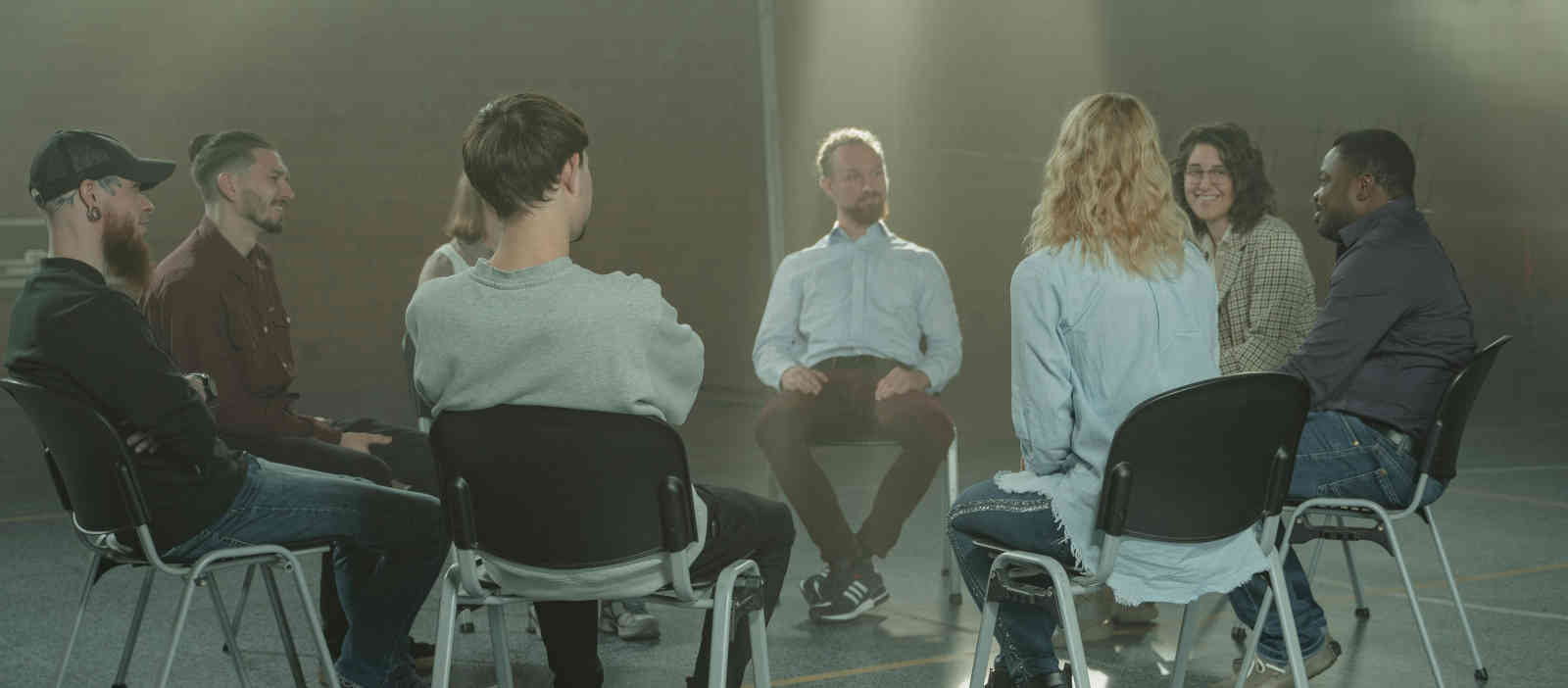Traditional churches and house churches each have their advantages and disadvantages.
A bigger community means more people and a wider range of gifts being expressed. But also a more structured service, less flexibility and less opportunity to decide what will help you most.
Stations church is an attempt to have the advantages of a larger meeting while still allowing individual choice.
What is stations church?
The basic idea is to avoid fixed church services that have been planned by a few leaders – and often the same order of service every week.
Instead, church members get to choose among a variety of activities which will benefit them most. These activities take place in stations around the church building (or outside if the weather is fine), hence the name.
Format
When people arrive they can respond to a list of half a dozen or more spiritual or devotional activities that will carry on simultaneously, and either continuously or in several sessions of about 15 minutes each. They make their choices from among these activities, and move from one to another as they find helpful.
Station sessions shouldn’t be rushed, but designed to allow people to reflect and respond to whatever the Holy Spirit is doing at that time.
Station activities are led by various members of the congregation or staff that have gifts in those areas.
To provide a sense of community and continuity, there could be an initial gathering to draw people together and make any announcements, and a concluding fellowship gathering.
Options
Stations can include the following (selected to be the activities most helpful to the community):

Prayers of confession
Catholics have their own traditions about Confession that could be used here. But for Protestants, confession may best be done by offering opportunity to write prayers on small sheets of paper. These can then be gathered up by the leader and burnt in an appropriate way to symbolise forgiveness. A general prayer of confession can be offered, and a significant Bible passage or affirmation of forgiveness can be said.
Reflection
A guided reflection or meditation. This can be based on a Bible verse, a teaching or a thought, a desired behaviour or an attitude towards God, and should gently lead into quietness, peacefulness and faith. There are many meditations online we can use, or we can write our own.
Song
One or more devotional songs sung by a congregational musician. When appropriate, attendees might be invited to join in a time of sung worship.

Intercessary prayer
This station should be visited by those seeking prayer or those willing to pray for others. Prayers can be written anonymously on Post-it notes and put on a wall. Others attending the station can choose to pray for some of the requests.
Silence
What it says. Sometimes people need to sit in silence, uninterrupted.
Bible reading
A selected passage can be read. Most useful may be Lectio divina, where the same passage is read two or three times, with time for reflection between and some guidance given on how to approach the second and third readings.
Prayer for the Holy Spirit
Too often we take the Holy Spirit for granted. It is good to provide opportunities for people to seek the Spirit’s guidance or power in their lives.
Lament
There is a lot in the world and in our lives that is troubling. Lamenting this state of affairs before God is a Biblical practice that can be helpful. A lament may involve reflection, prayer and a reading.
Justice
Write a letter via Amnesty in support of a political prisoner, or write a postcard to someone in hospital, in prison, or doing it tough. There are many ways to educate ourselves and support people in need.

Short (10 mins) talk
This can be a personal testimony, a devotional talk, or a Bible reflection. Perhaps more than one of these at separate stations.
Discussion
A station that runs for two sessions could include discussion of whatever topic seems useful.
Reading
Sometimes poetry or a section from a book can be helpful to reflect on or discuss briefly.
Creative activity
Be creative. Consider how art, writing, music or craft can be used to encourage or reinforce what God is doing in a person’s life.
Blessings and difficulties
Stations church provides many blessings.
- Congregational members take more responsibility for their own discipleship.
- Many more congregational gifts are used, and people with gifts feel more active and useful.
- There’s not just one aim each Sunday, with many people finding the service less relevant to their needs. Rather each person can be ministered to as they need on the day.
- The paid staff and leaders are not carrying such a burden of meeting people’s needs.
- Stations church provides variety.
However with this comes difficulties:
- Ministers aren’t trained for this and may find it threatening to lose some of their control.
- Members generally aren’t trained for leading these activities, and may require training and encouragement.
- It is a different form of church, and some traditional attendees may feel it isn’t “real church” (though actually it utilises a number of ancient practices of the church).
- It requires organising a large number of people, which some may find more onerous that preparing a 30 minute sermon and a bunch of songs.
- The stations church “service” requires people to be sensitive to others and not too noisy when they move from one station to another.
Start slowly
Therefore, it seems wise to start slowly.
- Organise a stations church “service” as a one-off and see what can be learnt from this.
- Explain the what and the why in advance, and afterwards.
- Start off small and build as seems appropriate.
- Don’t attempt too much too early.
- Ask for volunteers to lead stations and use the gifts available.
Stations church would probably best fit into a monthly pattern, such as used successfully by Central Church.
Does it work?
We have used the stations church format in a house church, where it was always well received. People were always willing to volunteer to lead a station. The main difference to what I have described here is that the stations weren’t run simultaneously, but sequentially, due to the smaller numbers.
I have never seen it used in a large church setting but I think it is worth a try.
Acknowledgement
The concept of stations church was developed by my good friends Kylie and David.
Main photo by Tima Miroshnichenko. Additional photos (in order) by Kairos Panamá, Luis Quintero and cottonbro studio.
Read more

Central Church – something for everyone
A church which doesn’t follow one traditional pattern of worship, but offers five different styles of meeting to provide for different people’s needs.

Sermons: not a good way to teach and make disciples
Communication in the church is more than speaking – we want listeners who will act on what they hear.

Discussion may be seen as an optional extra, but educators have found that it has a crucial and essential role in remembering, learning and acting on information.

Different and creative ways to make church more active than passive, more sharing than monologue, and hence more interesting and effective.
